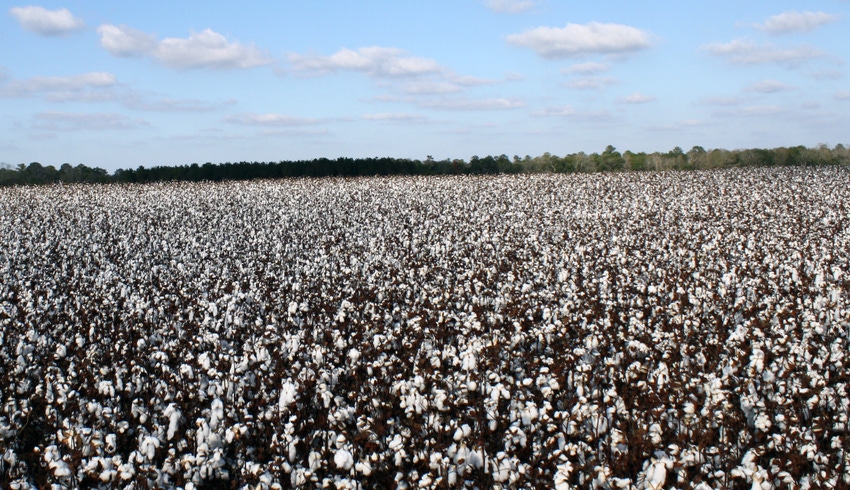May 29, 2017

Wrangler plans to use 40,000 pounds of the Newbys’ cotton to make a special collection of denim jeans to be sold in 2018.
The Newbys are a family of seventh-generation farmers from Athens, Ala, and through a pilot project will work with Wrangler and advisors from the Soil Health Institute to further improve their cotton yields while better managing irrigation, energy inputs, greenhouse gas emissions and soil conservation.
“Our family has always looked for new ways to make farming more economical, while taking better care of the land. There’s been a learning curve, but we’re beginning to see good results with things like cover crops and soil grid mapping. We’re happy to share what we’ve learned and maybe make it easier for other growers to transition to these practices,” said Jerry Allen Newby in a May 24 statement released by Sustainable Brands.
Wrangler has been a corporate sponsor of Future Farmers of America for more than 50 years and recently hosted a conference at Wrangler headquarters in Greensboro, NC to educate FFA youth on the science of soil health.
The pilot program and partnership between Wrangler and the Newby family was announced at SB ’17 in Detroit, where Wrangler co-hosted the Good Apparel pavilion. According to the Sustainable Brands statement, the fashion and textile industry is in the midst of a paradigm shift with key industry stakeholders working to drive sustainable cotton towards the mainstream.
The statement goes on to say, “U.S. cotton industry, from which Wrangler purchases roughly half of the cotton for its products, outperforms most other cotton growing regions across the globe on environmental metrics. However, Wrangler wants to determine how even greater environmental and economic benefits can be achieved through a programmatic focus on soil health.”
“Scientific research shows greater attention to soil health can further reduce the water and energy inputs required to grow cotton and other crops,” said Roian Atwood, sustainability director at Wrangler. “We’re working with a cotton grower in Alabama to explore the best way to implement and measure the effects of robust soil practices such as no-till, crop rotation and cover cropping. We hope to have dozens of growers in the program within a few years.”
About the Author(s)
You May Also Like






